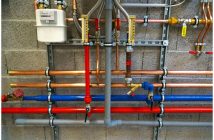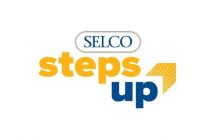COCC’s Small Business Development Center and the US Small Business Administration (SBA) will be holding two hour-long briefings on financing a small business on Thursday May 24.
The sessions are free and will be held in both Redmond and Bend. The Redmond session will be from 12 noon–1pm at the Redmond North Campus. The Bend session will be from 6–7pm at the COCC Bend Campus.
The loan briefings are presented by an SBA Loan Specialist and will cover financing options to start or grow a small business. Topics will include: SBA loan guarantee program, credit requirements, use of proceeds, how to approach a lender and loan proposal assistance.
Sessions are free of charge but pre-registration is required, call 541-383-7290 or http://noncredit.cocc.edu.
SMALL BUSINESS ADMINISTRATION LOANS
SBA offers a variety of loan programs for very specific purposes. Take some time to study the programs described in this section, to see if you qualify to participate.
7(a) Loan Program
The 7(a) Loan Program includes financial help for businesses with special requirements. For example, funds are available for loans to businesses that handle exports to foreign countries, businesses that operate in rural areas and for other very specific purposes.
SBA offers several special purpose 7(a) loans to aid businesses that have been impacted by NAFTA, to provide financial assistance to Employee Stock Ownership Plans, and to help implement pollution control mechanisms.
Approximately 70 percent of all U.S. exporters have 20 or fewer employees. SBA has placed a priority on helping these small business exporters by providing a number of loan programs specifically designed to help them develop or expand their export activities. If you own or wish to start a small export business, the following loans may be available to you with an Export Express Loan Program, Export Working Capital Program (EWCP) and International Trade Loan Program.
Rural Lender Advantage
The Small/Rural Lender Advantage (S/RLA) initiative is designed to accommodate the unique loan processing needs of small community/rural-based lenders by simplifying and streamlining loan application process and procedures, particularly for smaller SBA loans. It is part of a broader SBA initiative to promote the economic development of local communities, particularly those facing the challenges of population loss, economic dislocation, and high unemployment.
Key Features of the Initiative
- A streamlined, simpler, and more user friendly 7(a) process for small loans ($350,000 or less)
- One page application (two sided) for very small loans with key, but limited additional information required for loans above $50,000
- SBA guarantees 85 percent of loans of $150,000 or less and 75 percent of loans greater than $150,000
- Loans centrally processed through SBA’s Standard 7(a) Loan Processing Center
- Expedited SBA processing with routine loans processed within 3-5 days
- Lenders can transmit applications via fax and eventually online
- Simplified SBA loan eligibility questionnaire to help small or occasional lenders meet SBA’s eligibility requirements
- Training on SBA program requirements from local SBA offices
Small Loan Advantage and Community Advantage 7(a) Loan Initiatives
SBA is committed to expanding access to capital for small businesses and entrepreneurs in underserved communities so that we can help drive economic growth and job creation. In line with that, SBA is rolling out two new initiatives aimed at increasing the number of loans in these communities.
SBA and U.S. Department of Commerce studies have shown the importance of lower dollar loans to small business formation and growth in underserved communities. With that in mind, and building on the agency’s “Advantage” platform, both Small Loan Advantage and Community Advantage will offer a streamlined application process for SBA 7(a) loans up to $250,000.
The following Community Advantage lenders approved by SBA is based in Roseburg, Oregon.
SBA’s Express and pilot programs offer streamlined and expedited loan procedures for particular groups of borrowers, notably active duty military personnel, veterans, and borrowers from distressed …
Microloan Program
What is a Microloan?
The Microloan Program provides small, short-term loans to small business concerns and certain types of not-for-profit child-care centers. The SBA makes funds available to specially designated intermediary lenders, which are nonprofit community-based organizations with experience in lending as well as management and technical assistance. These intermediaries make loans to eligible borrowers. The maximum loan amount is $50,000, but the average microloan is about $13,000.
How Microloan Funds May Be Used
Microloans may be used for the following purposes:
- Working capital
- The purchase of inventory or supplies
- The purchase of furniture or fixtures
- The purchase of machinery or equipment.
Proceeds from a microloan cannot be used to pay existing debts or to purchase real estate.
Technical Assistance
Each intermediary (lender) is required to provide business training and technical assistance to its micro-borrowers. If you apply for microloan financing, you may be required to fulfill training and/or planning requirements before your loan application is considered. This business training can be helpful to you as you launch or expand your small business.
Terms, Interest Rates, and Fees
Loan terms vary according to:
- The size of the loan
- The planned use of funds
- The requirements of the intermediary lender
- The needs of the small business borrower
The maximum term allowed for a microloan is six years. Interest rates vary, depending on the intermediary lender and costs to the intermediary from the U.S. Treasury. Generally, these rates will be between 8 and 13 percent.
Collateral
Each intermediary lender has its own lending and credit requirements. Generally, intermediaries require some type of collateral as well as the personal guarantee of the business owner.
CDC/504 Loan Program
What is the 504 Loan Program?
The SBA 504 Loan program is a powerful economic development loan program that offers small businesses another avenue for business financing, while promoting business growth, and job creation. As of February 15, 2012, the $50 Billion in 504 loans has created over 2 million jobs. This program is a proven success and win-win-win for the small business, the community and participating lenders.
The 504 Loan Program provides approved small businesses with long-term, fixed-rate financing used to acquire fixed assets for expansion or modernization. 504 loans are made available through Certified Development Companies (CDCs), SBA’s community based partners for providing 504 Loans.
About CDCs
A Certified Development Company (CDC) is a nonprofit corporation that promotes economic development within its community through 504 Loans. CDCs are certified and regulated by the SBA, and work with SBA and participating lenders (typically banks) to provide financing to small businesses, which in turn, accomplishes the goal of community economic development.
504 Loan Structure
504 Loans are typically structured with SBA providing 40 percent of the total project costs, a participating lender covering up to 50 percent of the total project costs, and the borrower contributing10 percent of the project costs. Under certain circumstances, a borrower may be required to contribute up to 20 percent of the total project costs.
An example of how a typical 504 loan is structured follows:
504 Loan Example
Total 504 projects costs for a $1,000,000 project may include the following (eligibility requirements apply to the 504 portion of the project as well as the participating lending portion):
- Building Purchase
- Land
- Renovation
- Furniture and Equipment
- Soft Costs
- TOTAL $1,000,000
Loan Structure
- $500,000, 1st lien with bank (loan obtained from a private sector lender covering up to 50 percent of the total project cost)
- $400,000, 2nd lien with 504 loan, 20 year, fixed rate (loan obtained through a CDC, funded through an SBA-guaranteed debenture, covering up to 40 percent of the total project cost)
- $100,000, borrower contribution (contribution from the borrower of at least 10 percent of the total project cost/)
How 504 Loan Funds May Be Used
The use of proceeds from 504 Loans must be used for fixed assets (and certain soft costs), including:
- The purchase of existing buildings;
- The purchase of land and land improvements, including grading, street improvements, utilities, parking lots and landscaping;
- The construction of new facilities or modernizing, renovating or converting existing facilities;
- The purchase of long-term machinery* ; or
- The refinancing of debt in connection with an expansion of the business through new or renovated facilities or equipment*.
*Note: The 504 Program cannot be used for working capital or inventory, consolidating or repaying debt, or refinancing (except for projects with an expansion component or that meet the temporary refinancing provisions of the Small Business Jobs Act of 2010).
504 Loan Benefits for the Small Business
The 504 Loan program offers small businesses both immediate and long-term benefits, so business owners can focus on growing their business. Some of the top-level benefits include:
- 90% financing;
- Longer loan amortizations, no balloon payments;
- Fixed-rate interest rates; and
- Savings that result in improved cash flow for small businesses.
504 Loan Eligibility
To be eligible for a 504 Loan, your business must be operated for profit and fall within the size standards set by the SBA. Under the 504 Program, a business qualifies if it has a tangible net worth not more than $15 million, and an average net income of $5 million or less after federal income taxes for the preceding two years prior to application.
Loans cannot be made to businesses engaged in nonprofit, passive or speculative activities. For additional information on eligibility criteria and loan application requirements, small business and lenders are encouraged to contact a Certified Development Company in their area.
Temporary 504 Loan Refinancing Program – Small Business Jobs Act
Due to changes made to the Small Business Jobs Act in the fall of 2011, small business owners now have a new loan refinancing option. Changes were approved to the Small Business Jobs and Credit Act, allowing small business owners to use 504 Loans to refinance up to 90% of the appraised value of available collateral (existing commercial mortgages).
As Karen Mills, SBA Administrator commented, “The economic downturn of recent years and the declining value of real estate have had a significant, negative impact on many small businesses with mortgages maturing within the next few years. As a result, even small businesses that are performing well and making their payments on time could face foreclosure because of the difficulties they face in refinancing and restructuring their mortgage debt. This temporary program is another tool SBA can provide to help these small businesses remain viable and protect jobs.”
This program is authorized to provide $7.5 billion in financing and is available until September 27, 2012. As this program is time-limited, it’s important to act now if you are looking to refinance!




